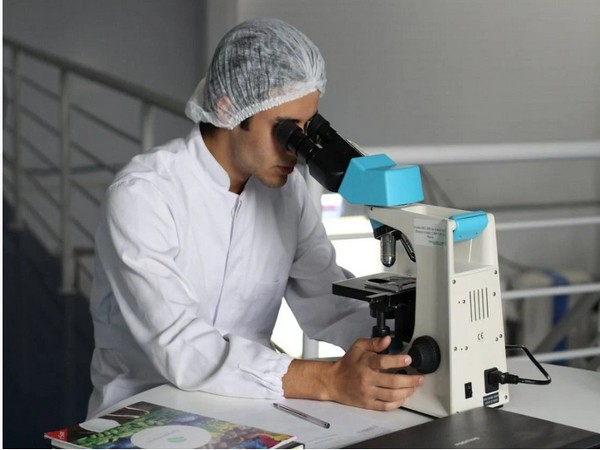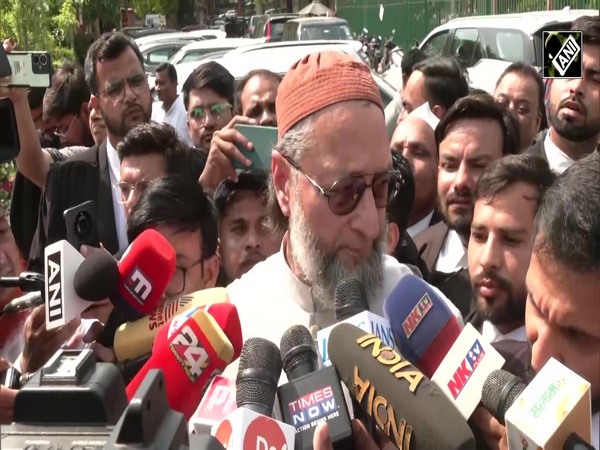Water Knowledge Resource Center (WKRC) initiative, set up under the project SEWAH, is presented at The UNC Water and Health Conference: Science Policy and Practice, October 2020
Oct 29, 2020

New Delhi [India], Oct 29 (ANI/PRNewswire): Safe Water Network India, an NGO along with the Joint Secretary and Mission Director, AMRUT, Government of India, USAID, and Small Water Enterprise Alliance partners participated in The UNC Water and Health Conference: Science Policy and Practice, October 28, 2020.
This webinar aimed to disseminate the findings of Water ATMs role as Water Knowledge Resource Centers (WKRC) for generating awareness on WASH, water conservation, and judicious use of water. It also amplified the communication on COVID-19 pandemic prevention to improve public health, a government priority.
Water ATMs also became a focal point for promoting citizenship engagement with the municipalities, besides providing affordable, safe water access.
Project SEWAH - Sustainable Enterprises for Water and Health sponsored this Water Knowledge Resource Center (WKRC) initiative under an Alliance between Safe Water Network and USAID, supported by Honeywell and Pentair.
Poonam Sewak, Vice President Programs and Partnerships, Safe Water Network, hosted the event and was the moderator and panelist. Other panelists included D. Thara, Joint Secretary, and Mission Director, AMRUT, Anand Rudra, Senior Advisor WASH, USAID India, Dr Parag Agarwal, Founder and CEO, Janajal, Minhaj Chowdhury, CEO and Co-Founder, Drinkwell Bangladesh, and Suresh TT, CEO WaterHealth Ghana.
WKRC has devised solutions for sustainable and equitable Water, Sanitation, and Hygiene (WASH) practices and supported municipalities in advocacy and citizenship engagement through its four-pronged approach:
WKRC for education: WKRC doubles up as a center of engagement between citizens and ULBs for display and dissemination of broader government IEC material on WASH, not restricted to hand-washing and safe drinking water access.
WKRC for schools: WKRC promote School WASH Plus program, an action-research and advocacy program with a focus on increasing the scale, impact, and sustainability of school water, sanitation, and hygiene.
WKRC for women: It trains Self-Help Group women on identifying opportunities to improve water resources, encourage judicious use of water and water conservation, and advocate and improve water security locally.
WKRC citizen corner: Serve as a platform for the municipality, water supply officials, and local community to interact and address their grievances and ensure that water services have equity, inclusion, good governance, maintenance, to give uninterrupted services.
"Small Water Enterprises are doing a commendable job in reaching out to communities through access to safe drinking water. We need to encourage social entrepreneurs' participation in the sector, improve the service delivery process, and introduce benchmarking to explore newer engagement opportunities. Increased awareness will help people live healthier lives and preserve the environment for future generations," said D Thara, Joint Secretary, and Mission Director, AMRUT, while speaking at the session.
"Small Water Alliance partners shared their early WKRC experiences to improve the program design, minimize disruptions during COVID-19 and serve the communities within the existing resources. WKRC is an innovative low-cost solution for safe water access and coupled with strategic communication using novel techniques it boosts the social impact. While the Water ATMs display posters in local languages and play recorded messages, our local women champions spread awareness through WhatsApp," said Poonam Sewak, Vice President Programs and Partnerships, Safe Water Network.
"We are using a hub-and-spoke model for the expansion of safe water deliveries and communication to communities living in the remotest areas. To facilitate the last-mile delivery, we are using CNG-operated three-wheelers. The communities have welcomed these programs and understand the far-reaching benefits of WASH practices to improve their lives," said Dr Parag Agarwal, Founder and CEO, Janajal.
"The WKRC program is not limited to a specific country. In addition to Assam In India, the program is now thriving in our Water ATMs in Bangladesh to promote well-being of communities," said Minhaj Chowdhury, CEO, and Co-Founder, Drinkwell Bangladesh.
"WKRC's were first experimented with by WaterHealth in India and is rolling it out at our Ghana Water ATMs. Our WKRC program creates awareness about handwash and Covid care by using technology to reach larger audiences quickly," said Suresh TT, CEO WaterHealth Ghana.
WKRC has created solutions for sustainable and equitable water, sanitation, and hygiene (WASH) systems to raise the living standards of the underserved. The initiative also supports sending a girl child to the school, helps Self-Help Group women be leaders, and trains them to prevent water-borne disease outbreaks.
Thus, WKRCs are about achieving more with less and responding to the communities' multiple needs while making the most significant impact possible in raising water consciousness by utilizing SWEs for more than just safe water access. The program contributes to UN SDG Goal 6.1 Safe Drinking Water for All, and UN SDG Goal 17 Partnerships for the Goals. The program that started with 12 cities in India has expanded beyond India to Bangladesh and Ghana.
This story is provided by PRNewswire. ANI will not be responsible in any way for the content of this article. (ANI/PRNewswire)



















